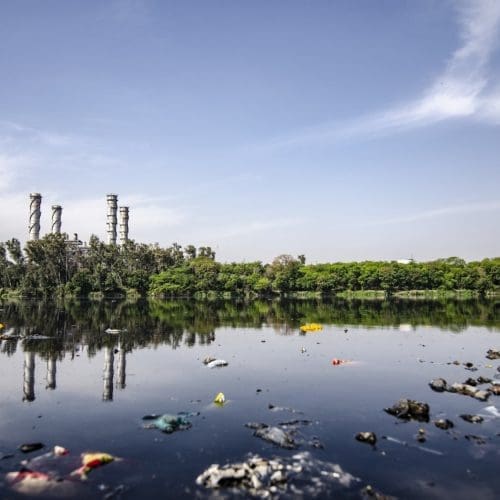Record £90 million fine sends a message to all polluters!
July 2021Recent comments by the Courts suggest that in respect of large companies, sentencing guidelines need to be reviewed in order to provide stiffer sentences. Irrespective of any proposed changes, last Friday, Southern Water received a £90 million fine for thousands of illegal discharges of sewage which polluted areas of Kent, Hampshire and Sussex. The £90 million fine is the largest ever fine for environmental pollution by a water company to date and Emma Howard Boyd, Chair of the Environment Agency has commented that it shows that fines for environmental offences are starting to reach the same level as the highest fines in financial services, amongst growing scrutiny of the environmental performance of commercial enterprises. Significantly, it is interesting to note that Southern Water would have been fined £135m for its failures had they not pleaded guilty at the first opportunity in March of last year.
This Southern Water fine dwarfs’ previous significant fines in 2021, where we have already seen Thames Water being fined £2.3m[1] and ordered to pay costs of £87,944 after a stream was polluted by sewage in 2016. The incident, which saw sewage containing high levels of ammonia released into Fawley Court Ditch at Henley-on-Thames, killed over 1,100 fish and other water life.
In May of this year, Thames Water was fined £4m[2] and ordered to pay costs of £84,669 after untreated sewage escaped from sewers below London into a park, woodland and the Hogsmill River, in New Malden. Judge Francis Sheridan took into consideration incidents in February 2016, January and October 2018 and September 2019.As with the earlier Thames incident it has been reported that dozens of alarms would have informed staff about the incident, but these were either missed or ignored. All of these cases repeat a theme of preventable events, where repeated warnings have been ignored.
Previous concern about the effectiveness of environmental prosecution resulted in the Environmental Offences Definitive Guideline (“Definitive Guideline”) coming into force on 1 July 2014. The Definitive Guideline was intended to promote a consistent approach to sentencing for environmental offences, and to address concerns that the fines imposed previously did not reflect the seriousness of environmental offences. The use of guidelines is driving increased focus on environmental compliance due to the scale of the fines for large companies, even where there is comparatively low culpability and limited environmental damage.
The guidelines provide the court with a range of potential fines and with a starting point which is based on: the harm caused by the offence or risk of harm that could have arisen; the culpability of the offender; the turnover of the organisation; and mitigating/aggravating factors. Suffice to say, since 2014 fines have remained consistently high for large organisations.
Yet looking wider to enforcement generally, a recent case, Birmingham City Council v Tesco Stores Ltd (unreported, 19 April 2021) concerned Tesco being fined £7.46m after pleading guilty to 22 offences under the Food Safety and Hygiene (England) Regulations 2013 brought the issue of large fines sharply into focus.
The sentencing guidelines relevant to this case relate to health and safety offences, and food safety and hygiene offences. Interestingly, when turning to address the level of fine to be imposed on Tesco, the Judge was critical of the Sentencing Council guidelines, suggesting “…[t]hat the Sentencing Council desperately needs to introduce another table in their sentencing tables…” and “…give guidance on multi-billion-pound companies.”
An Alternative to a fine
Commercial enterprises and companies would be correct in becoming more fearful of the scale of environmental fines. However, as an alternative in the environmental sphere, Enforcement Undertakings are being used more and more frequently via negotiation with the Environment Agency.
An Enforcement Undertaking is a voluntary offer made by an offender to:
- put right the effects of their offending
- put right the impact on third parties
- make sure the offence cannot happen again
If an offer is accepted, it becomes a legally binding. The Environmental Agency will only consider accepting an Enforcement Undertaking for cases where:
- it is not in the public interest to prosecute
- the offer itself addresses the cause and effect of the offending
- the offer protects, restores or enhances the natural capital of England
A recent example of an Enforcement Undertaking reported on 17 June 2021[3] was between the Environment Agency and Anglian Water.
Anglian Water paid out £100,000 to 2 environmental charities after breaching the Salmon and Freshwater Fisheries Act 1975. After investigating, Environment Agency officers found that Anglian Water had discharged matter or effluent that is poisonous or injurious to fish, spawn, spawning areas or food of fish.
Anglian Water entered into an Enforcement Undertaking agreeing to take steps to ensure similar incidents would not happen again and offered to pay £100,000 to charity. Anglian Water also agreed to review its staff training and incident response measures.
Between 1 October 2020 and 1 March 2021, the Environmental Agency have accepted 28 Enforcement Undertakings.
Conclusion
Whilst we accept that the Southern Water fine is at the top end of the scale, this prosecution serves as a stark reminder that it is important that organisations and their directors take appropriate steps to comply with environmental legislation as any breaches are likely to result in a significant and large fine that will (and is intended) to have a significant effect on the business. All businesses when faced with a potential prosecution, would do well to obtain immediate legal advice and assistance, especially in the context of the Environment Agency and other compliance organisations repeating the mantra that “polluters will pay”.
[1] https://www.gov.uk/government/news/thames-water-fined-23-million-for-foreseeable-pollution
[2] https://www.gov.uk/government/news/thames-water-fined-4-million-after-catastrophic-sewage-blunder
[3] https://www.gov.uk/government/news/anglian-water-pays-out-100000-to-charity-for-2-water-pollutions
Download PDF








